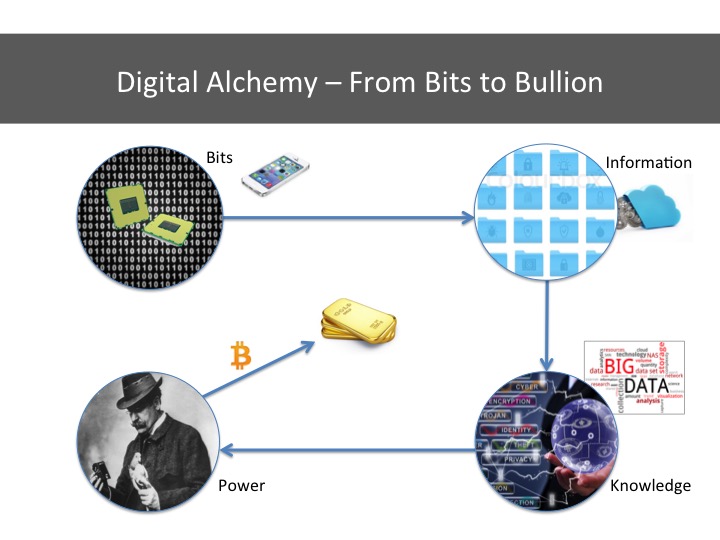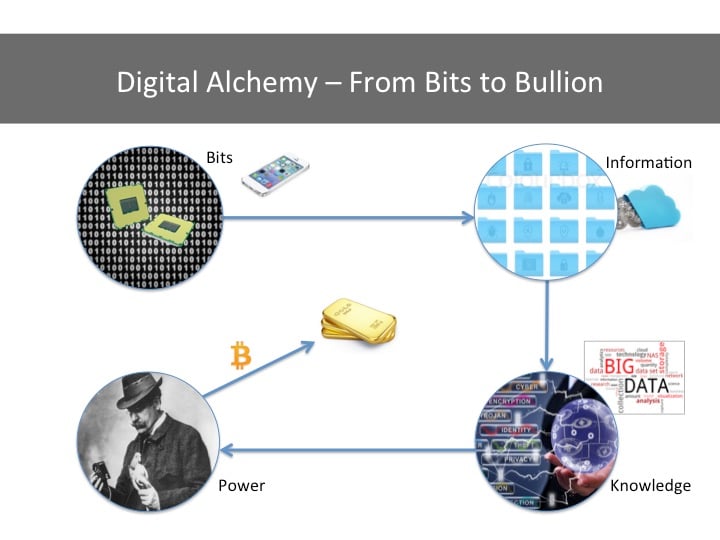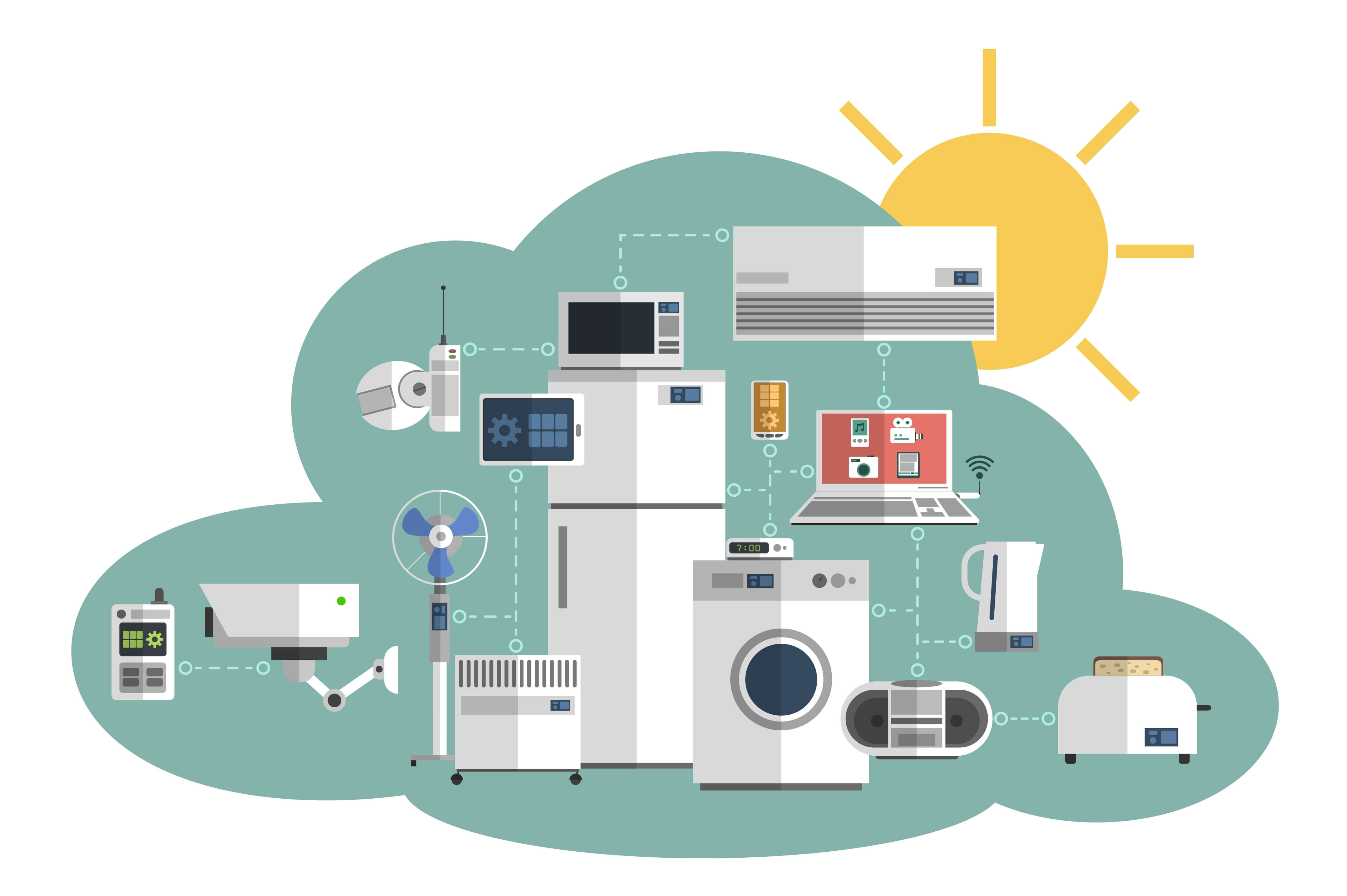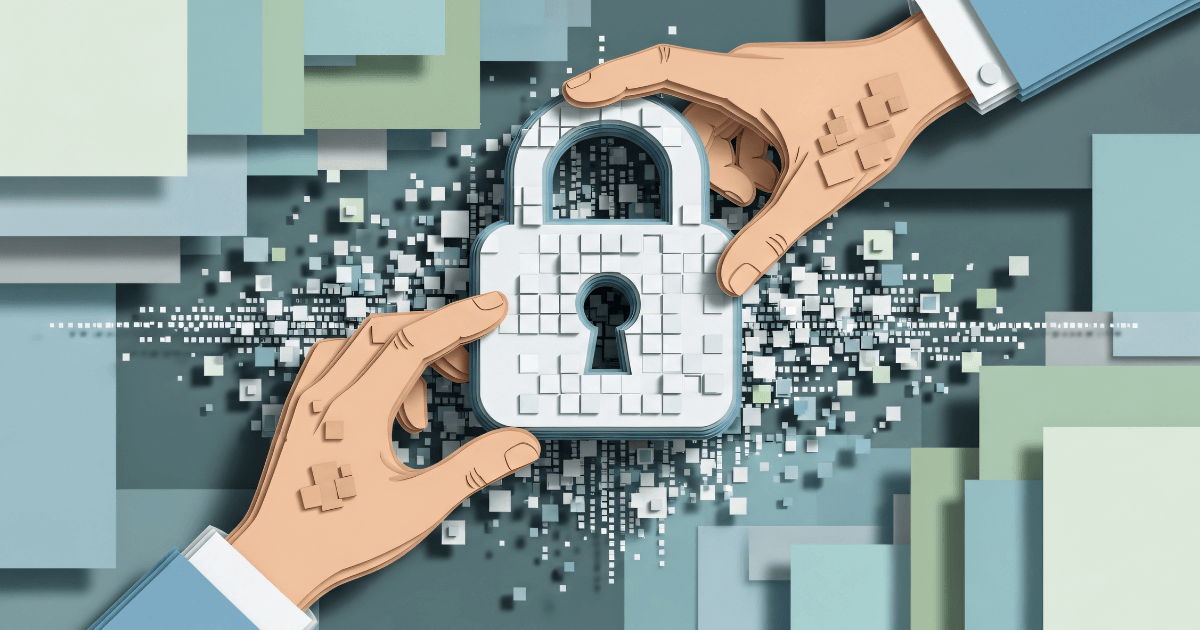5 min read
Meeting the New, AI-Enabled Face of Risk
When we introduced our OmniNet Bridge solution in 2014—known to many of you as My Digital Shield—it represented the next generation of network...

Mobile computing, cloud storage, and Big Data software have changed the way we interact with information. Less than 10 years into this trend, data continues to grow exponentially, with an estimated doubling rate every 72 hours by 2020. Due to its rising intrinsic value, information has become a sort of currency. How does this happen? How is raw data transformed into a store of wealth? Here, we address these questions to better understand the phenomenon that defines the framework for future economic activities.
First; metadata. It's a term you want to get comfortable with for the future. Metadata is defined as "information about information". Information gains value with volume. One bit doesn't mean anything, but two does, and it grows from there. Powerful Big Data software uses highly engineered algorithms to connect the dots and gain seemingly magical insight. Unlike other commodities that follow the traditional economic laws of supply and demand, more bits (binary digits) of information create more potential for knowledge. More knowledge = more power = more money.

The emerging mega-trend known as"The Internet of Things", (IoT) compounds this  equation of digital economics. IoT refers to the proliferation of computer chips through declining cost and increased power. Estimates range from 20 billion to 100 billion of "aware" and connected "things" by 2020. These include cars, clothing, refrigerators, or anything else in place to collect and share information deemed valuable in some shape or form.
equation of digital economics. IoT refers to the proliferation of computer chips through declining cost and increased power. Estimates range from 20 billion to 100 billion of "aware" and connected "things" by 2020. These include cars, clothing, refrigerators, or anything else in place to collect and share information deemed valuable in some shape or form.
The tremendous growth of information drives value creation in even the most mundane pockets of data, including our personal information. "I have nothing to hide" holds no respite. "I have everything to lose" must categorize even the most irrelevant aspects of out lives.
Alchemy noun al·che·my \ˈal-kə-mē\
: a power or process of transforming something common into something special.
Alchemy - such as creating gold from a base metal like lead or copper-- extracts everything from nothing. Its mythic allure has fascinated humanity across cultures since the dawn of civilization. In the digital context, the alchemic process is creating a tsunami-sized wave of criminal activity designed to mine wealth from bits.
Bits are an elemental ingredient of information. Represented as a "1" or "0", "on" or "off", positive or negative, they're a long way from a value worth pursuing. So how does it take place?
The alchemy of transforming standard bits into something of significant value takes place over four stages:
Bits to Information - Bits make up the most basic level of machine-level code. Computer chips, known as "central processing units" assemble the bits with instructions from software to create something the user can understand. Software programs and applications translate binary code into the interfaces we use on our computers.
Information to Knowledge - Once software assembles the bits, they can be sorted, sifted, compared, and contrasted with other information to create knowledge. Database and "Big Data" software are examples of the tools that mine higher levels of knowledge from the fundamental elements of common information.
Knowledge to Power - Intelligence is a tool that enables users to create and influence desired outcomes. Just as governments and corporations strive to gain intelligence to optimize the success of their activities, so too do modern criminals. The more details they know (names, passwords, dates of birth, account numbers, daily schedules, etc.), the more opportunity at hand to create the outcome they seek. The use of stolen information can facilitate financial fraud, blackmail, extortion, and even robbery and assault. This is why traditional crimes are increasingly originating with stolen personal information.
Power to Wealth - Digital information is portable, making it easily sold in both
legitimate and illegal ways. Black markets on the Dark Web are proliferating to accommodate the exchange of stolen information, and typically use BitCoin and other digital currencies for payment. Digital currencies create liquidity for the criminal and anonymity of the transaction - a perfect platform to nurture and monetize illegal activity.
 Transforming information into power and wealth stands the test of time. But, unlike methods of the past, digital information is intangible, instantly portable, and location-independent.
Transforming information into power and wealth stands the test of time. But, unlike methods of the past, digital information is intangible, instantly portable, and location-independent.
Now, anyone can opt to play the game at an exceedingly low price of entry. Coupled with unlimited upside and perpetrator anonymity, we expect online crime to grow massively for the next several years and beyond.
 Subscribe to the Cyber Advisor Newsletter.
Subscribe to the Cyber Advisor Newsletter.

5 min read
When we introduced our OmniNet Bridge solution in 2014—known to many of you as My Digital Shield—it represented the next generation of network...

9 min read
Over the past decade writing these letters, I’ve made it my mission to help you navigate the digital age with confidence and resilience. If I have...

4 min read
For generations, family offices and ultra-high net worth families have mastered the art of estate planning — preserving wealth, ensuring succession,...